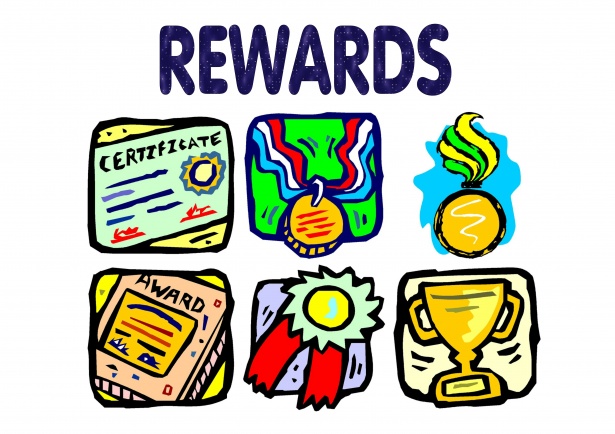Return to Education Newsletter main page! |
The Nitty Gritty of Incentivizing LearningBy Gabi Cohn ISJL Education Fellow
Have you ever wondered how often incentives need to occur to make a difference in your classroom? It is easy to fall into a never-ending cycle of rewarding someone for the same, expected behavior, over and over. We use incentives to provide external motivation for our students, but if they don’t learn from them, the incentives are not doing their job. Behaviorist B.F. Skinner breaks down changing behaviors and looks at the frequency behind incentives and what sort of schedule works best. According to his teaching, there are five different schedules of reinforcement, and each one has a different result regarding the speed of learning and speed of forgetting.
Each type of reinforcement has an incentive or reward; the difference is how often the students receive it and what the deciding factor is. Different tasks lend themselves to different types of reinforcement schedules. Think about what you want the take away for your students to be. Find the right reinforcement to match your educational goals and put it to use! Source: http://www.simplypsychology.org/operant-conditioning.html |
- Home
- WHO WE ARE
-
WHAT WE DO
- PODCAST
- Conference >
- Education >
-
CULTURE
>
- Culture Overview
- Cultural Programming >
-
History
>
-
Encyclopedia of Southern Jewish Communities
>
- Alabama Encyclopedia
- Arkansas Encyclopedia
- Georgia Encyclopedia
- Florida Encyclopedia
- Kentucky Encyclopedia
- Louisiana Encyclopedia
- Mississippi Encyclopedia
- North Carolina Encyclopedia
- Oklahoma Encyclopedia
- South Carolina Encyclopedia
- Tennessee Encyclopedia
- Texas Encyclopedia
- Virginia Encyclopedia
- Encyclopedia Credits
- Oral History
-
Encyclopedia of Southern Jewish Communities
>
- SPIRITUALITY >
- DONATE
- Shalom Y'all
- Strategic Plan
- Southern & Jewish Blog
- Calendar
- Virtual Press Kit
|
©2024 Goldring/Woldenberg Institute of Southern Jewish Life
|

